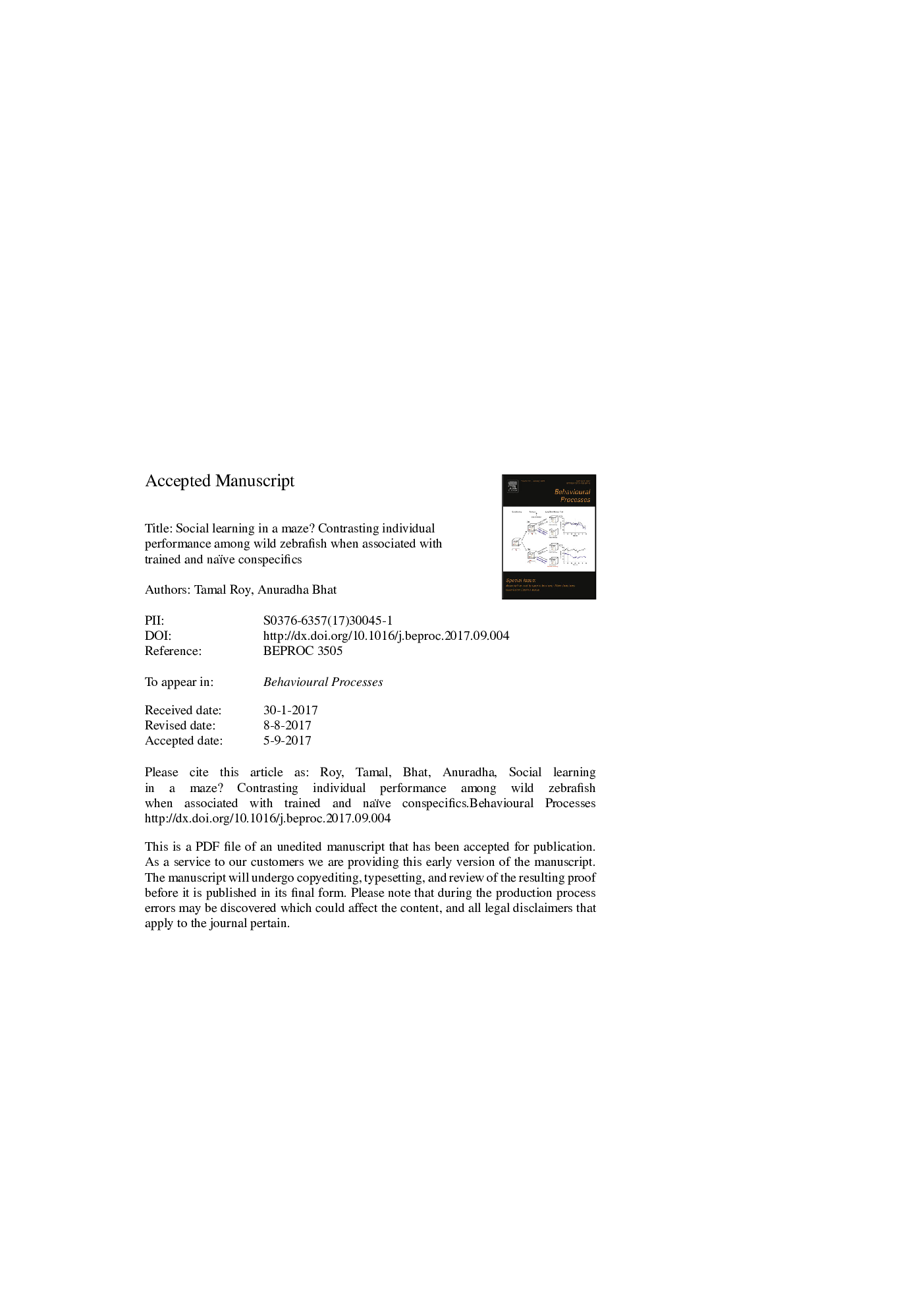| Article ID | Journal | Published Year | Pages | File Type |
|---|---|---|---|---|
| 5539718 | Behavioural Processes | 2017 | 32 Pages |
Abstract
Social learning facilitates informed decision making about foraging, mating and anti-predatory tactics among animals. We investigated the occurrence of social learning through performance in a spatial task among wild-caught zebrafish. Individual fish (demonstrators) were trained through a novel food finding task in a maze for 8Â days. Demonstrators were paired with naïve individuals (observers) and subjected to trials through maze for 4Â days followed by removal of the demonstrators and further training of observers for 4 more days. Paired naïve individuals were subjected to trials through the maze in similar fashion separately and the performance of observers were compared with theirs. Our results showed that observers associated with knowledgeable conspecifics did not perform the task better than naïve-paired individuals. Performances across trials improved for both sets while number of mistakes committed increased indicating no learning. The presence of a demonstrator could have increased the observer's activity, increasing the chances for the observer to come in contact with the stimulus. Performance of observers and naïve-paired fish were probably affected by social distraction. Sex and body-size of the dyads (demonstrator-observer pairs and naïve pairs) could also have interfered with information transfer among individuals.
Related Topics
Life Sciences
Agricultural and Biological Sciences
Animal Science and Zoology
Authors
Tamal Roy, Anuradha Bhat,
